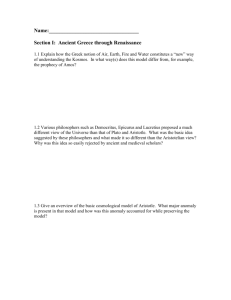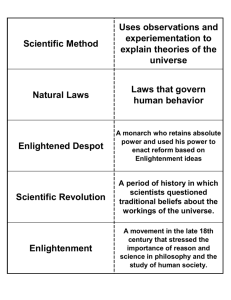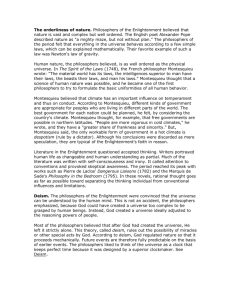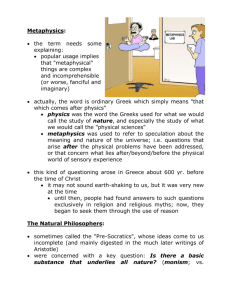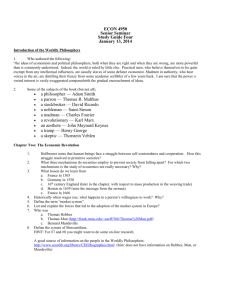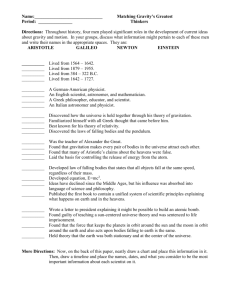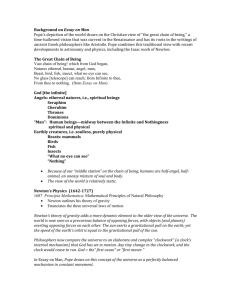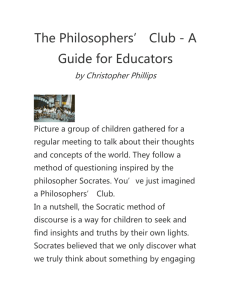HAWKING, Stephen A Brief History of Time ….. “A well
advertisement
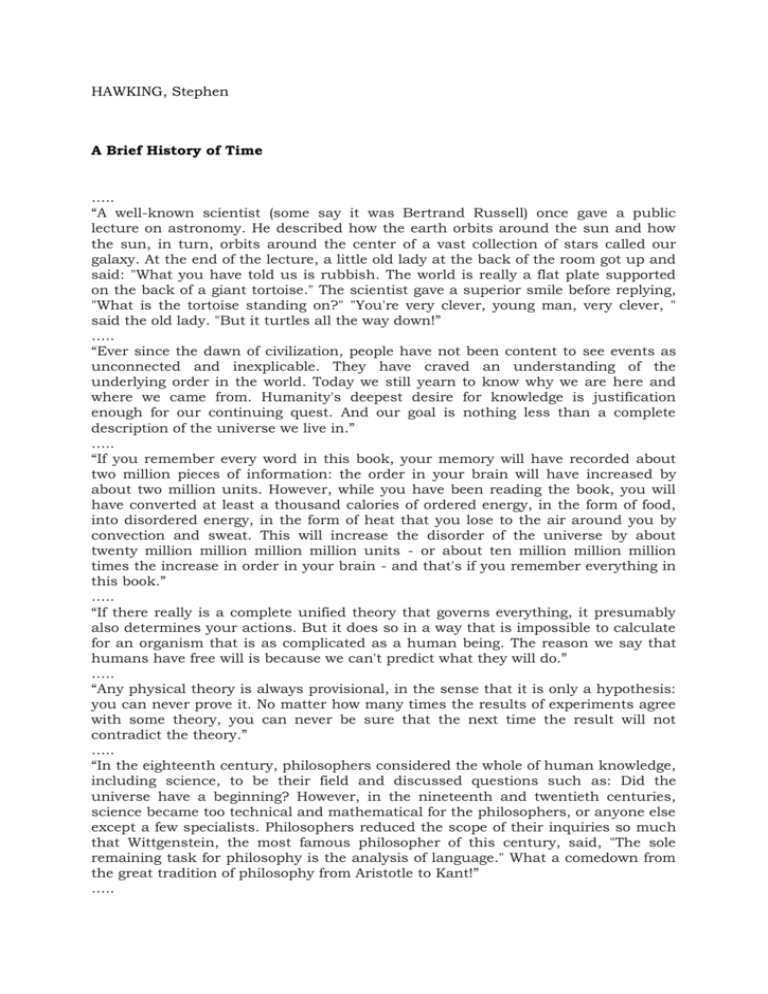
HAWKING, Stephen A Brief History of Time ….. “A well-known scientist (some say it was Bertrand Russell) once gave a public lecture on astronomy. He described how the earth orbits around the sun and how the sun, in turn, orbits around the center of a vast collection of stars called our galaxy. At the end of the lecture, a little old lady at the back of the room got up and said: "What you have told us is rubbish. The world is really a flat plate supported on the back of a giant tortoise." The scientist gave a superior smile before replying, "What is the tortoise standing on?" "You're very clever, young man, very clever, " said the old lady. "But it turtles all the way down!” ….. “Ever since the dawn of civilization, people have not been content to see events as unconnected and inexplicable. They have craved an understanding of the underlying order in the world. Today we still yearn to know why we are here and where we came from. Humanity's deepest desire for knowledge is justification enough for our continuing quest. And our goal is nothing less than a complete description of the universe we live in.” ….. “If you remember every word in this book, your memory will have recorded about two million pieces of information: the order in your brain will have increased by about two million units. However, while you have been reading the book, you will have converted at least a thousand calories of ordered energy, in the form of food, into disordered energy, in the form of heat that you lose to the air around you by convection and sweat. This will increase the disorder of the universe by about twenty million million million million units - or about ten million million million times the increase in order in your brain - and that's if you remember everything in this book.” ….. “If there really is a complete unified theory that governs everything, it presumably also determines your actions. But it does so in a way that is impossible to calculate for an organism that is as complicated as a human being. The reason we say that humans have free will is because we can't predict what they will do.” ….. “Any physical theory is always provisional, in the sense that it is only a hypothesis: you can never prove it. No matter how many times the results of experiments agree with some theory, you can never be sure that the next time the result will not contradict the theory.” ….. “In the eighteenth century, philosophers considered the whole of human knowledge, including science, to be their field and discussed questions such as: Did the universe have a beginning? However, in the nineteenth and twentieth centuries, science became too technical and mathematical for the philosophers, or anyone else except a few specialists. Philosophers reduced the scope of their inquiries so much that Wittgenstein, the most famous philosopher of this century, said, "The sole remaining task for philosophy is the analysis of language." What a comedown from the great tradition of philosophy from Aristotle to Kant!” …..

